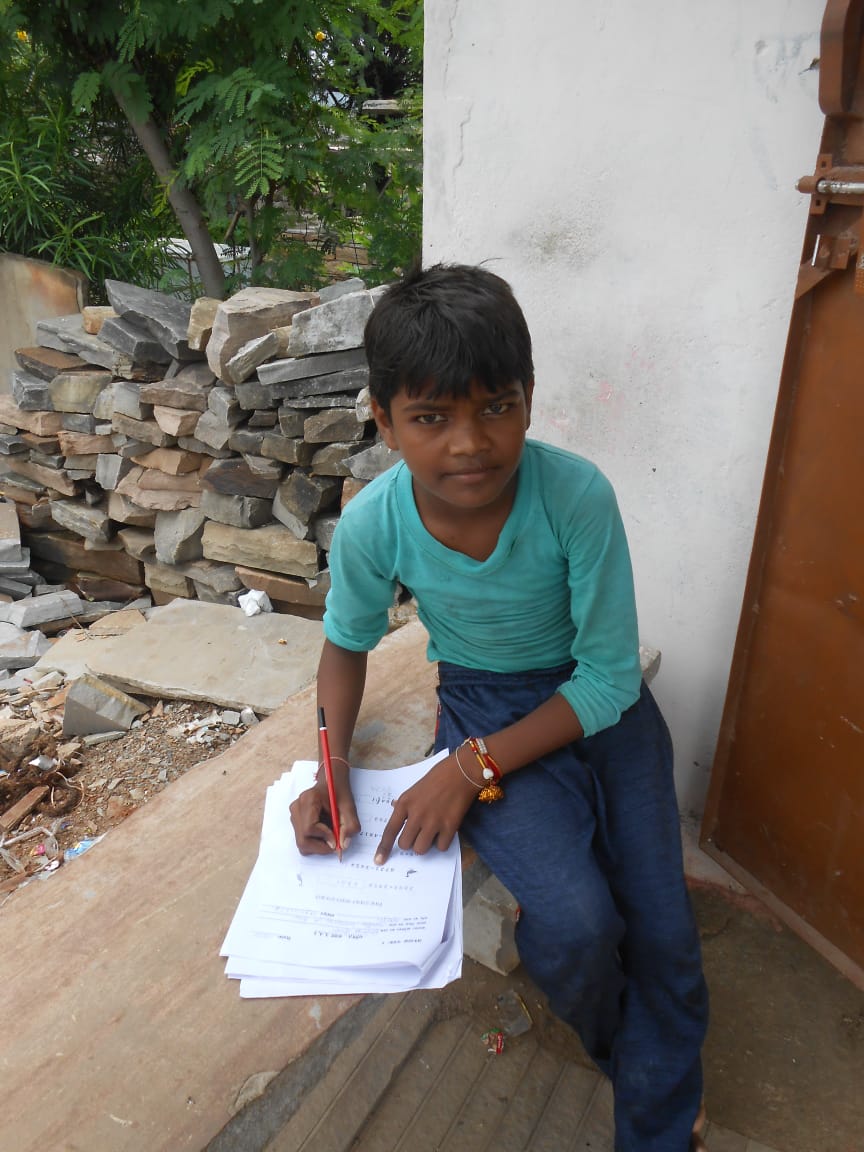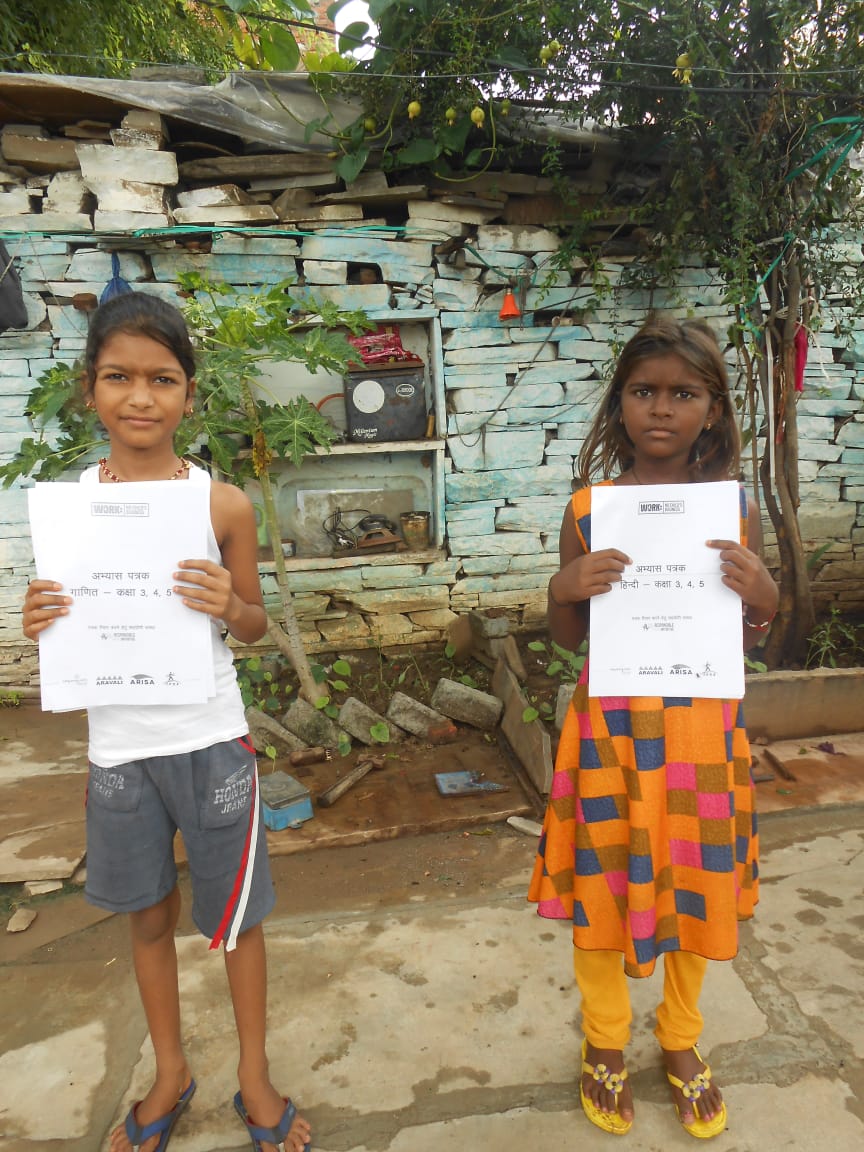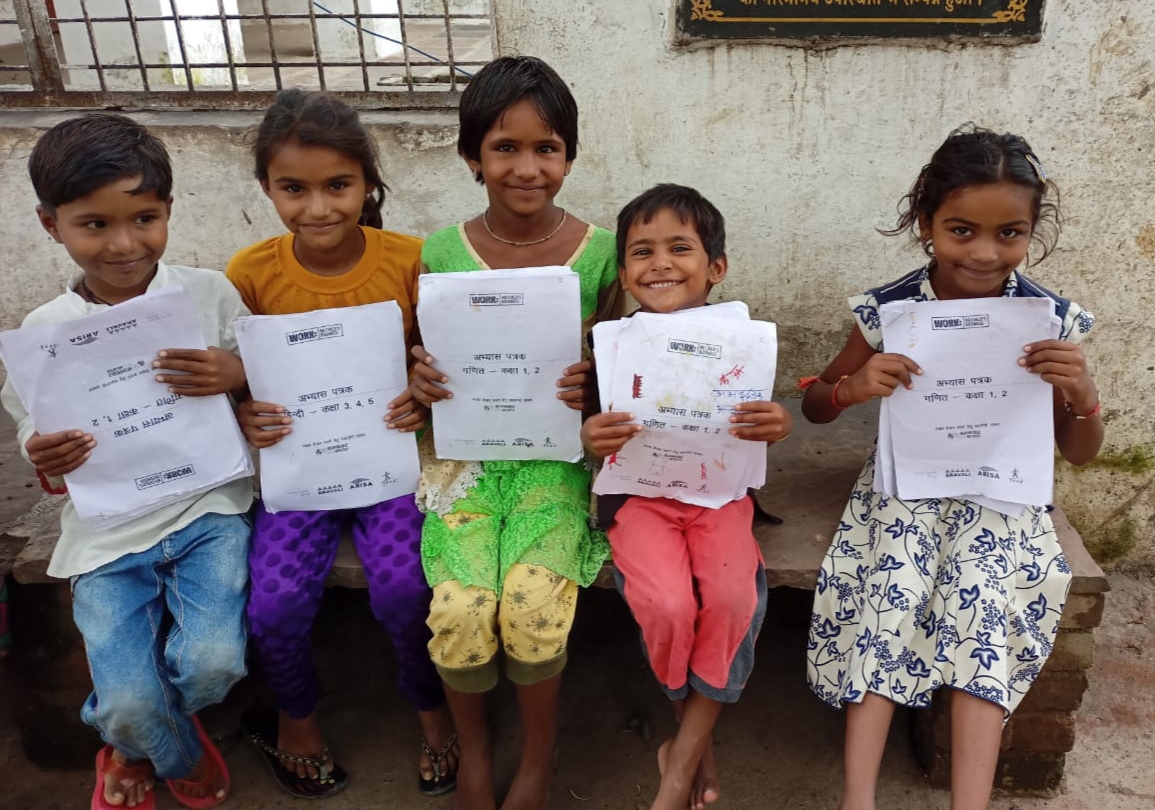In Budhpura, life is never ‘normal’. This small village in the Bundi district in Rajasthan is densely populated with mining workers and their families. The unorganized and unregulated nature of natural stone supply chain attracts children and adolescents to join the workforce. On the other hand absolute poverty levels also act as the ‘push factors’ for the children to join the work at an early age. Focused efforts have been done by the Government and Civil Society Organizations to ensure enrollment of children in schools. In last few years, the enrollment rates in local schools have gone up.
Schools are closed due to the Covid-19 lockdown restrictions. The state is implementing online education programmes to ensure continuity of learning processes. However, the lack of internet connectivity is a problem for the families in Budhpura. Having a mobile with internet connectivity is still a distant dream.
The WNCB partners in Rajasthan raised the issue of this ‘digital divide’ and warned for the risk of contributing to social exclusion. Even though online classes are a viable alternative, unequal and patchy access to the internet illustrates that it is largely dependent on location and household income. A survey of NCERT (National Council of Educational Research and Training) suggests that 27% of the pupils in India do not have a smartphone and laptop, meaning one-third of the children do not have the resources to join online classes. Amid the debates of online or offline education for children, there is a need to align educational efforts according to specific needs of children and develop community based mechanisms to address this issue.
Recognizing this, and seeing that the pandemic leads to drop-outs and increase in the number of out-of-school children, the WNCB partners ARAVALI and Manjari in Rajasthan decided to take up action. With a creative initiative, they have come up with a learning program through the work-sheet method. The WNCB partners worked with subject experts and developed work-sheets for grades 1-5 following the defined Minimum Learning Levels. At present the work-sheets have been developed for subjects like Mathematics and Hindi and reached about 1500 children of Budhpura and surrounding villages.



Education Volunteers have stepped forward to ensure continuity in the education of children from vulnerable communities. Each volunteer was responsible for visiting 100 households and for the distribution of work-sheets and related pedagogy. Community based peer educators were also identified. The volunteers along with peer educators help the children if they face any difficulties while solving the work-sheets. After 3 days the work-sheets are collected and reviewed. The learning gaps are identified and one to one educational support activities are being planned for the children.
The WNCB partners are managing this initiative for 13 villages around Budhpura. In just over three months of implementation, we’ve experienced great progress. Over 1500 children of class 1 to 5 have benefited and continued education through the pandemic. Rajesh Kumar, a parent said, “We, as parents, were suffering due to lack of access to online classes for our children. Now even we are assisting the children to study and touching base. The work-sheet distribution has been highly beneficial.”

